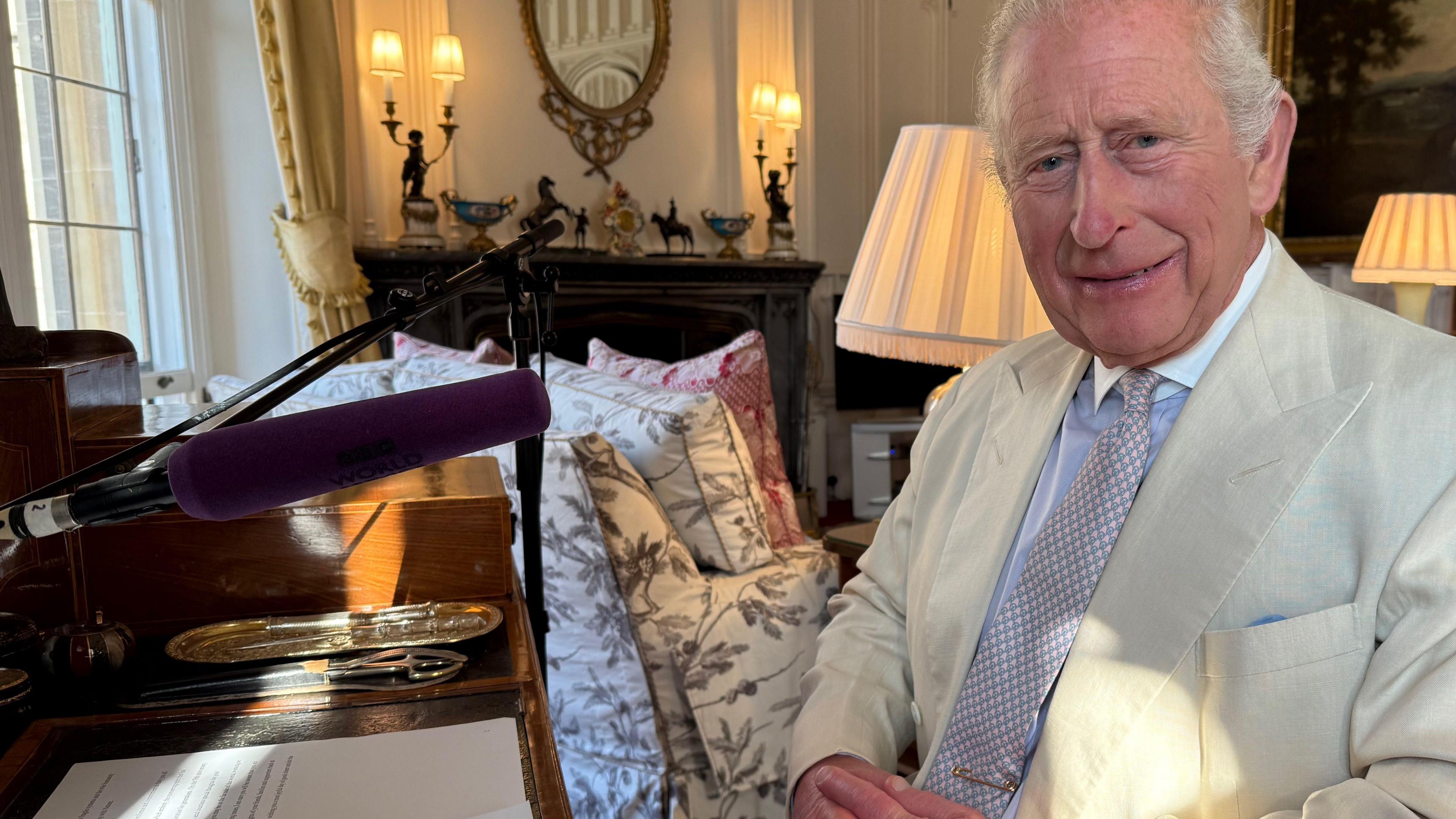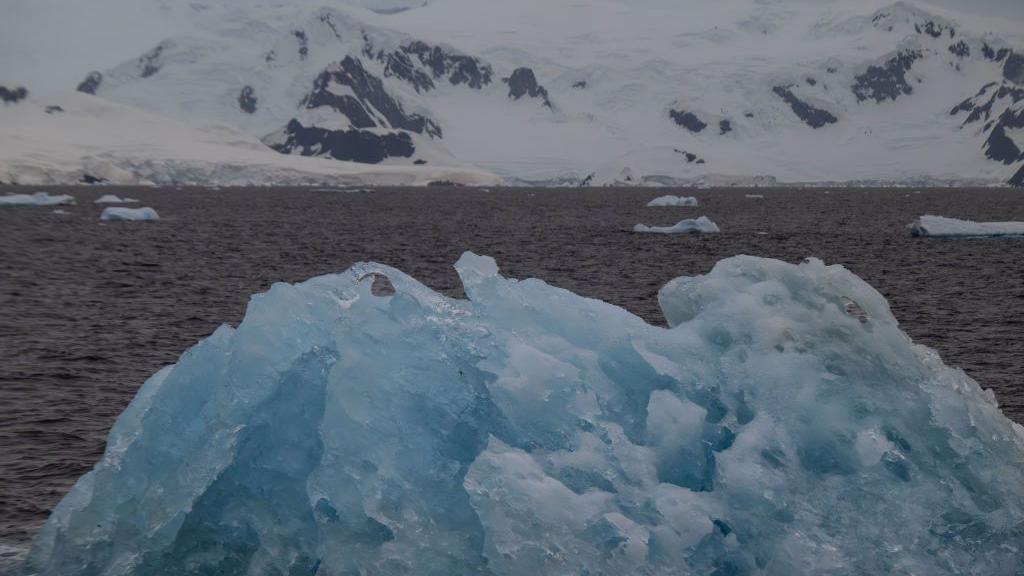King's Midwinter message to Antarctic researchers

The King with his script for the BBC broadcast to Antarctic researchers
- Published
King Charles has recorded a warm personal message to researchers in Antarctica celebrating a frozen Midwinter's Day - the first time a monarch has given the annual broadcast.
Marking the BBC Antarctic Midwinter Broadcast's 70th anniversary, which sends a morale-raising message to remote research stations in the depths of their winter, the King praised the work of scientists tracking climate change.
"Each observation, measurement and calculation you undertake adds to the world's understanding of the Earth's fragile systems," the King said.
Alex Rootes, who leads the UK's Rothera research base, said it was an honour to be recognised for their work "at the cutting edge of science in a really difficult part of the world".
While much of the UK swelters in the summer heat, Antarctica is celebrating an icy Midwinter's Day without any sun and with driving snow.
"With the sun shying away from your horizon today, I particularly wanted to send my warmest good wishes," said the King, who praises the researchers' "critically important work".
The King, a longstanding environmental campaigner, spoke of his appreciation for the scientists' "resilience and commitment" as they tracked changes in the ice in Antarctica, examining the "role humanity plays, as we struggle to live in harmony with nature".
The broadcast from the BBC World Service is part of the traditional Midwinter celebrations for scientists at these isolated bases.
Previous contributions have included a message from Sir David Attenborough, a quirky song from Bill Bailey - "There's rock and roll at the South Pole" - and a comedy sketch from the cast of W1A, which claims "they're actually moving a glacier from one place to another".
King Charles is the first monarch to be part of this annual broadcast - with a message praising the British Antarctic Survey, which he said was "more vital than ever, telling us stories of the past, the present and possible futures".
The British Antarctic Survey has described Antarctica as a "barometer of environmental change", as its researchers extract and analyse ice cores to see changes in climate over hundreds of thousands of years.
Mr Rootes is one of 41 researchers at Rothera who will be listening to the broadcast in Antarctica - a location so remote that it's a thousand miles to the nearest hospital. Also in this very bespoke audience have been researchers at bases in Bird Island and South Georgia.

Scientists have been measuring changes in Antarctica's ice
Mr Rootes told the BBC it was currently warmer than usual in Antarctica, at -2C, but that it can be tough to cope without any daylight, which makes it even more important to have a community celebration for Midwinter.
"At this time of year when the darkness has really closed in, it's very easy psychologically for people to withdraw into themselves," he said.
"It's a really vital part of our mental health provision that people have something like this, which people really look forward to."
The traditions for Midwinter Day are something similar to having Christmas in June, including giving presents, a big dinner and watching the same film each year.
The seasonal favourite is The Thing, a 1980s sci-fi horror film about a group of scientists in Antarctica under threat from an unknown presence. Mr Rootes says it's now part of the ritual of the day.
This is the southern winter solstice, the shortest day in their location, more than 1,000 miles south of the southern tip of South America.
This year, there are plans at the Rothera base for a 10km (6.2 miles) fun run, if the conditions allow. It's one way of chilling out.
The annual BBC broadcast becomes a connection with home, with messages sent by the researchers' families and selections of their favourite music.
But Mr Rootes said the King's message will be an important endorsement of their work, as they measure changes in marine life and the ice linked to climate change.
"It's lovely to feel like we have the King talking to us and recognising us in this remote community," he said.
The Antarctic Midwinter Broadcast is on BBC World Service, Saturday 21 June at 19.32 (18.32 GMT) or listen to it online at BBC Sounds.

Sign up here to get the latest royal stories and analysis every week with our Royal Watch newsletter. Those outside the UK can sign up here.